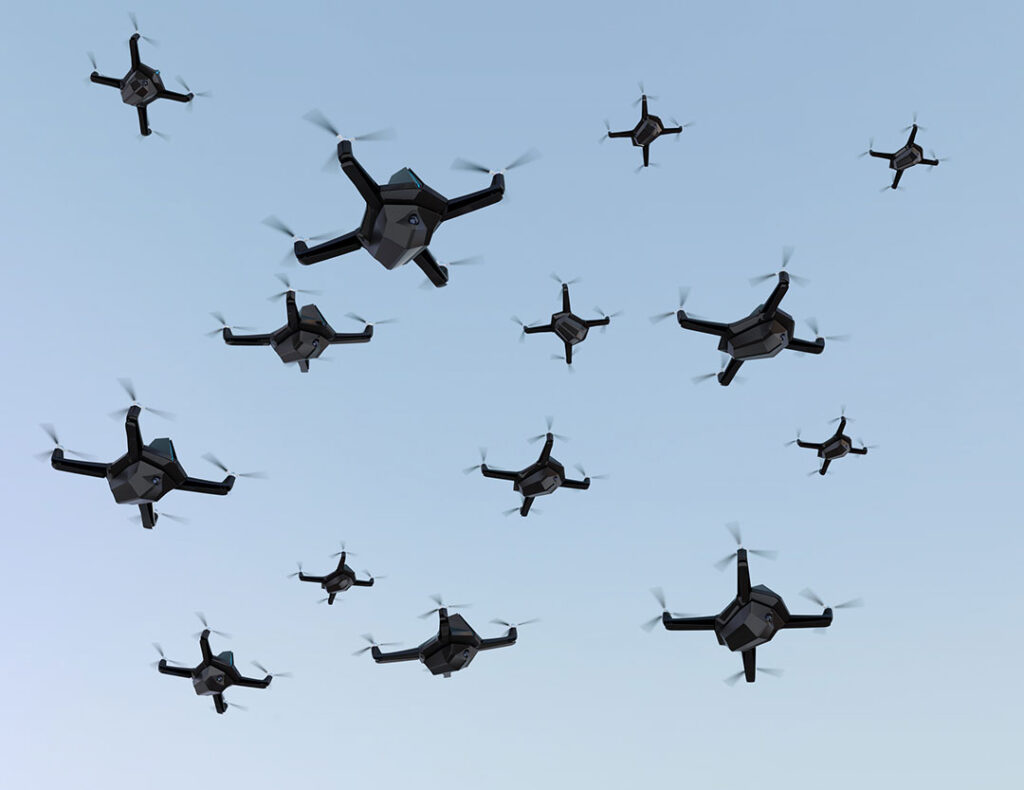The future of conflict in Africa is being built on three pillars: mercenaries, drones and false information, according to analyst Alessandro Arduino.
In his new book, “Money for Mayhem,” Arduino, an affiliate lecturer at King’s College London, sees future conflicts in Africa being built around private military contractors capable of simultaneously deploying experienced fighters, operating combat drones and running deceptive social media campaigns that largely target young people.
“Africa is a perfect storm for this sort of thing happening,” Arduino told ADF in an interview.
More than any other groups, Russia’s Africa Corps — and the Wagner Group before it — provides the model for this vision of future warfare on the continent. This model is not so different from the past, when mercenaries were hired decades ago to fight in conflicts from Angola to Sierra Leone.
In the Sahel, for example, ruling juntas have invited Wagner Group mercenaries to help them fight extremist groups. The mercenaries are paid for their services by mining gold and other natural resources in Burkina Faso and Mali. The countries’ weak governments rely on mercenaries to protect them from domestic challenges to their rule.
A similar situation exists in the Central Africa Republic, where Russian mercenaries have been active since 2018, serving as presidential security, going into battle with the Army and running propaganda campaigns targeting civilians.
“Mercenaries are despised by everyone, but the door is still left open,” Arduino told ADF.
The irony, however, is that the presence of mercenaries in a conflict zone only makes conflicts worse. That’s by design, according to Arduino.
“Their business thrives on perpetual chaos,” Arduino told The Conversation. “Every ceasefire threatens their livelihood.”
Drones have provided low-cost air power for paramilitary groups, such as Sudan’s Rapid Support Forces (RSF), and governments looking for an alternative to multimillion-dollar fighter planes and other aircraft.
Paired with mercenaries, drones become an air force-for-hire capable of supporting ground-based fighters or launching aerial assaults such as the RSF’s May attack on the Sudanese government’s Port Sudan headquarters.
Russia is not alone in supplying African nations with turn-key military operations. Turkey also is becoming an important player in that marketplace through its state-owned private military contractor Sadat.
Turkey has been active on the side of the government in Sudan’s civil war as Russia indirectly backs the RSF through Wagner and its ally Libyan Field Marshal Khalifa Haftar. Russia and Turkey remain on opposite sides of the civil war in Libya, which became an early testing ground for drone warfare.
“This fusion of a rentable army and an off-the-shelf air force could become a powerful export, serving Ankara’s political and economic ambitions in Africa,” Arduino said in The Conversation.
Turkey also is the source of the Bayraktar TB-2 and Akinci drones that have become the go-to unmanned aerial vehicle (UAVs) for militaries across the continent. During its drone attack on Port Sudan, the RSF targeted the hangars housing Turkish drones and their operators.
The third element of Arduino’s vision of future warfare in Africa is false information, particularly the kind spread online that targets young people.
Mercenary groups are using rapidly evolving technology such as artificial intelligence (AI) and paid influencers to spread their own messages. Wagner Group propaganda has helped persuade Sahel military leaders to replace French and United States counterterrorism forces with Russian mercenaries.
Mercenary companies that can provide experienced fighters, high-tech drones and false information campaigns will play a role in future conflicts, Arduino told ADF.
The power of that combination is being demonstrated daily in African countries.
“Of all the areas of the world, the one that will suffer the most will be Africa,” he added.

